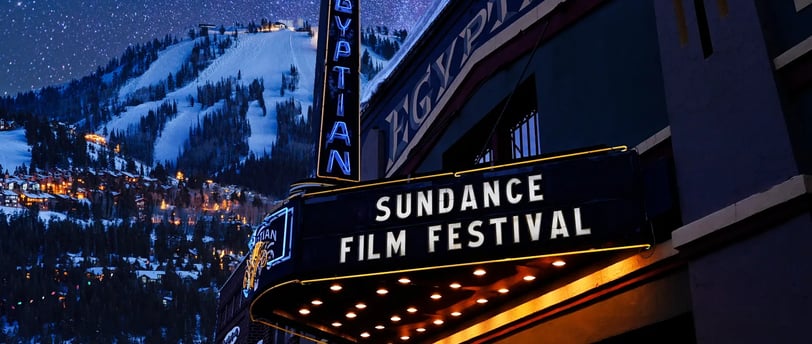Only for my family and close friends.
Sundance Film Festival
Founded in 1978, USA Independent cinema begins here.
FESTIVALS
5/24/20252 min read


The Sundance Film Festival was born in the mountains of Utah in 1978 and redefined what it means to be an independent filmmaker in America. Originally called the Utah/US Film Festival, it was relaunched under the guidance of Robert Redford and the Sundance Institute in 1985.
Its mission was clear: to support artists outside the Hollywood system, champion original storytelling, and give a platform to voices often silenced by commercial pressure.
More than just a festival, Sundance is a movement. It’s where filmmakers like Quentin Tarantino, the Coen Brothers, Richard Linklater, Kelly Reichardt, and Jordan Peele got their start. It became the crucible for the rise of indie cinema in the 1990s and continues to push boundaries today in terms of identity, race, gender, politics, and form.
Sundance matters because it represents the heartbeat of cinema—messy, urgent, human, and brave. For future generations, the films that premiered at Sundance are key to understanding how storytelling evolved in the 21st century: raw, intimate, personal, and deeply political.
2000–2009: The Rise of Intimate Realism and Genre Rebirth
This decade saw Sundance embrace quieter, emotionally raw films about everyday life, family fractures, and existential dilemmas. The festival also nurtured a new wave of genre-bending indies—horror, sci-fi, and comedy with a human core. Sundance became known for character-driven storytelling and fearless formal experimentation.
4 Essential Films (2000–2009):
Memento (2000, Christopher Nolan) – A revolutionary narrative structure and psychological complexity.
Garden State (2004, Zach Braff) – A cultural time capsule of early 2000s angst and romance.
Primer (2004, Shane Carruth) – An ultra-low budget sci-fi marvel on time travel and obsession.
Little Miss Sunshine (2006, Jonathan Dayton & Valerie Faris) – A heartwarming road trip and satire on the American Dream.
2010–2019: Identity, Trauma, and Radical Voices
As the 2010s unfolded, Sundance became the global center for exploring racial identity, gender politics, mental health, and the trauma of modern life.
The festival nurtured marginalized voices—especially Black, queer, and immigrant storytellers—and often served as the launchpad for films that reshaped the cultural conversation in the U.S. and beyond.
4 Essential Films (2010–2019):
Fruitvale Station (2013, Ryan Coogler) – A devastating true story of police violence.
The Witch (2015, Robert Eggers) – A genre-defining folk horror with feminist undertones.
The Farewell (2019, Lulu Wang) – A poetic family drama balancing East and West, comedy and grief.
Get Out (2017, Jordan Peele) – A cultural phenomenon blending horror and racial satire.
2020–2024: Digital Frontiers and Inner Revolutions
Even during the COVID-19 pandemic, Sundance remained vital, transforming into a hybrid festival and continuing to spotlight radical vulnerability, identity exploration, and digital storytelling.
Emerging directors tackled isolation, misinformation, gender fluidity, and the climate crisis with fresh eyes and bold creativity. Sundance remained a safe haven for emotionally rich, politically urgent, and stylistically inventive filmmaking.
4 Essential Films (2020–2024):
CODA (2021, Siân Heder) – A joyful and groundbreaking story about deaf culture and family love.
Palm Springs (2020, Max Barbakow) – A sharp, absurdist take on time loops and modern relationships.
Flee (2021, Jonas Poher Rasmussen) – An animated documentary on queer identity and forced migration.
Past Lives (2023, Celine Song) – A soulful meditation on fate, love, and what might have been.
